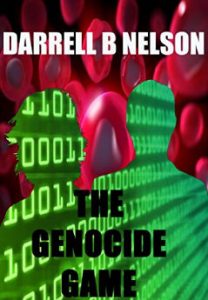Today on the author blog, Leland Lydecker reviews Trackers: A Post-Apocalyptic Survival Series by Nicholas Sansbury Smith.
Warning: contains spoilers.
As the title suggests, the Trackers series chronicles the struggles of the survivors of an apocalyptic event. That event is the detonation of several high-altitude EMPs over the contiguous United States. The attack is ostensibly retaliation for an ill-conceived mission which liberated the granddaughter of a US Senator from a North Korean prison camp.
Trackers begins with the inciting raid, then cuts to the day of the EMP strike. In regards to the science of the attack and how it might realistically be carried out, Sansbury Smith did his homework. Trackers contains one of the more believable end-of-the-world scenarios I’ve read.
The meat of the story concerns a gruesome murder mystery playing out at the same time as the attack and its aftermath. Compared to the stagnant fare of “the world is screwed and we’re trying to stay alive” that dominates the Post-Apocalyptic genre, this premise comes across as fresh and interesting. The rest of the novel, sadly, is more standard post-apocalyptic fare.

